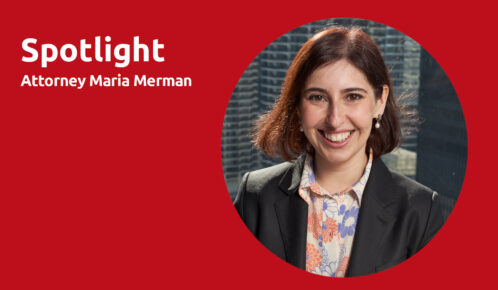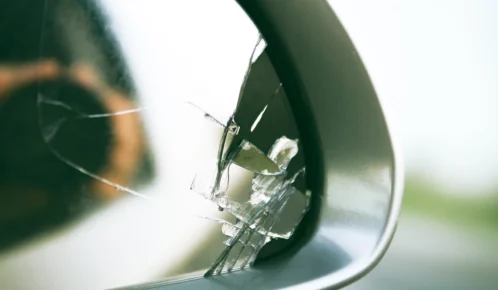Intro music begins

Howard Ankin: Welcome to another edition of Chicagoan’s You Should Know. I’m here with David Kaplan who’s with NBC Sports Chicago, author and all-around great guy to find out a little bit about what he does and what his life experiences.
David, thanks for being with us.
David Kaplan: Thanks for having me.
Howard: Tell us, you work for NBC Sports Chicago and your current show is Sports Talk Live, correct?
David: Sports Talk Live is a panel discussion that I moderate. We’ll bring in three writers or broadcasters from other stations or papers in town and we’ll talk about the issues of the day and I try to be more than just a traffic cop, I try to inject humor into it and I try to inject my opinion.
Howard: So during the season, that’s what you’re doing, correct?
David: Correct, and then I also do the Cubs pre and post-game show for NBC so that keeps me pretty locked in.
Howard: And as an advertiser, I mean, I thank you because it’s…I think a lot of people see me for watching those shows…
David: They do!
Howard: So what’d you do before you started doing Sports Talk Live, what’d you do before that?
David: So I was a radio guy in town at WGN Radio for 22 years and prior to that, I was a college basketball coach at Northern Illinois University. So I…basketball was where I made my name. I did a newsletter that covered college recruiting and so that started getting me into media. “Hey, can you come on my show and talk about how Illinois is recruiting or DePaul?” Illinois and DePaul were huge back then, and you’re a proud Illinois grad; ‘89 they go to the final four and I’m right in the middle of that thing.
Howard: Battle to Seattle!
David: Right, and I recruited Battle when I was at Northern Illinois and then he transferred to Illinois and so that got me into the media and then that was the phone call that changed my life. Some guy got snowed in, couldn’t get in to do a DePaul game, they’re number one in the country, it’s two hours from tip. “Have you ever done TV?”
“Yes I have!” And there I am.
Howard: It’s pretty interesting though that you started your career even coaching basketball. How’d you get into that?
David: So I was a student at a small school in Minnesota in St. Paul, Hamlin University, and I saw this ad one day in student union that said that this local school, Kellogg High School was looking for assistant basketball coach, that it paid $1,000 for the season and I’m thinking, that’s like a mile from campus, $1,000, and live in a fraternity and all the beer I could buy? Are you kidding? And I love sports, I’m in. I go interview and he makes me the head junior varsity coach and then his assistant, and I start learning all about what it means to really be a coach, and then I graduate from college in 1982. I am sitting at the kitchen table at my parent’s house, I pick up the paper, it said Purdue University had fired their assistant basketball coach and I’m like, I got one year high school experience. I can do that job, and I called Purdue University, Gene Keady, Hall of Famer, was the coach and Gene Keady takes the call. He says, “Hi, coach Keady.”
I said, “Hi coach Keady, my name is David Kaplan, I’m the basketball coach at Kellogg High School in St. Paul, MN and I saw that you’re looking for an assistant.”
“I am, tell me your level of experience.”
“Coach, I have one year of high school experience.”
He starts laughing. “How old are you?”
“22”
He says, “Get some experience then call me back in ten years,” and he hangs up.
The next day, Northern Illinois University announced assistant coach so-and-so had resigned. I don’t even know who the coach is there. At least I knew who Gene Keady was. 411. Dials phone motion. Hi, Northern Illinois University phone please…
Howard: What’s that phone number?
David: 753-1000
Howard laughs
David: They connect me to the basketball…they don’t even have a basketball secretary.
“Basketball coach McDougal.”
I said, “Hi coach, my name is David Kaplan, I saw you’re looking for an assistant,” and he tells me, “yeah, you have no experience, you got no chance.” I begged him, I borrow a tie from my dad, I drive there, we spent three hours walking around campus. He shows me the locker room, the arena, and then he said, “You know you’re a hell of a nice young man. You’re utterly unqualified for this job.”
And I’m at a basketball clinic in Milwaukee Hubie Brown was putting on, get a call, I get paged, I go to the front desk, “Your mother is on the phone, she’s looking for you.”
“Hello,” I think something’s wrong, and she says, “Coach McDougal called, you gotta get back to him tonight, it’s urgent.”
I call him back and he like, “Look, I hired someone else.” Ironically the guy who got fired at Purdue got that job. “But I have a third assistant, it’s called the part-time assistant. You’ll work full-time hours for part-time money, $4,200 a year.”
I’m like, “I’m in!” Done.
Howard: You also recently like wrote a book this last year or two that had a lot of acclaim about the Cubs winning the World Series and you know, the background to that. Tell me about that book.
David: So my agent, Steve Mandel, calls me and says, “Hey how about writing a book?” and I said, “yeah, no.” He said, “I’m telling you, they want to do a Cubs book with you and go inside the team.” This is February of ’16, I’m at spring training and I said, “Look if they don’t win the World Series, no one’s buying your book. There’s a billion Cubs books out there, BUT if you want to write a story how they built this thing from an awful organization to this model franchise, and they’re going to win the World Series this year, I promise you. That’s something I’d be interested in.”
He said, “Well if they don’t win and you’re chronicling a team how they built this thing and they don’t win it, who’s gonna buy it?” and I said, “I’m telling you, they’re winning the World Series.”
This is February ’16 and the good Lord smiles on me, they win the World Series and The Plan was the name of the book.
Howard: If somebody calls you and they says they’ve involved in an accident, hurt at work, need help for an auto accident case, what are you telling them?
David: I tell them to call Howard Ankin, 312-6000.
Howard: Kap, this has really been great talking to you, thank you for talking to me.
Background music grows louder, end video



